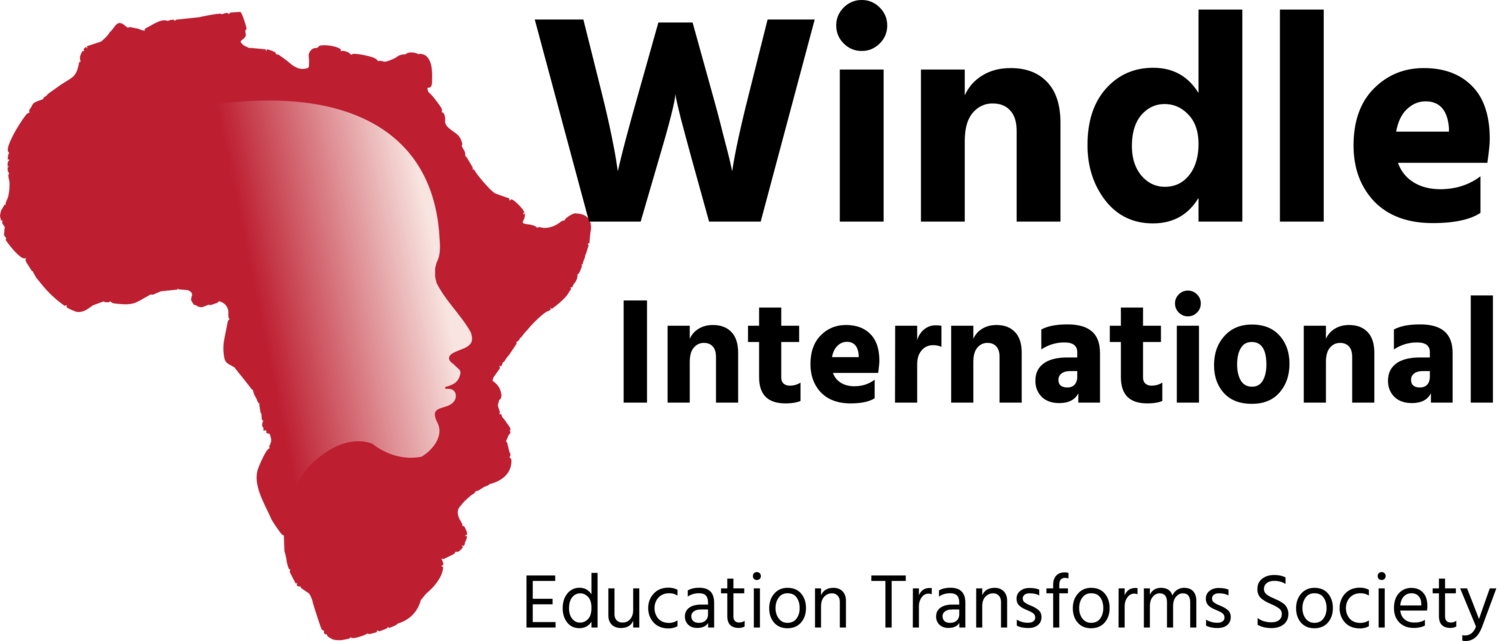New project will bring improved learning outcomes to thousands of children
A new project has been launched that will see nearly 15,000 secondary school students better able to study, despite the many challenges of school life in Kakuma Refugee Camp, Kenya.
In November 2020, a partnership agreement between Windle International Kenya (WIK) and Book Aid International (BAI) was signed for the implementation of the Mini Solar Homework Club project.
The Mini Solar Homework Club project aims provide students and teachers with access to quality up to date supplementary subject books, revision guides and youth fiction as well as solar lamps to increase learning time.
A teacher with students at Kakuma Refugee Secondary School
Providing solar lamps and new curriculum support books and novels for secondary school students to borrow and use to support their studies after school addresses challenges such as inadequate learning resources and lack of electricity, and leads to improved reading and learning outcomes.
The Windle International Kenya schools participating in the project are:
Greenlight Refugee School
Kakuma Refugee Secondary School
Kalobeyei Settlement Secondary School
Somali Bantu Secondary School
Vision Secondary School
Morneau Shepell Secondary School for Girls
Brightstar Integrated Secondary School (BISS)
The donations to the 7 schools participating includes:
2,800 UK donated books (400 per school)
Local curriculum textbooks and set texts/books worth £1,400
910 A2 solar lamps for students.
The Mini Solar Homework Club builds on the success of the first Solar Homework Club project in Kakuma, where six secondary schools were provided with a collection of supplementary books, solar lamps and training to assist teachers to set up a lending scheme to enable students to borrow books and lamps and study at home.
Book Aid International (BAI) works in libraries, schools and other contexts in and beyond sub-Saharan Africa, donating books and delivering library development and librarian and teacher training projects, directly and through implementing partners (IP).
Each year, Book Aid International sends thousands of brand new, carefully selected books for secondary schools to Kakuma Refugee Camp in Kenya through Windle International Kenya.
Windle International Kenya, a member of Windle International, is a humanitarian organisation providing quality education to children and young people from refugee and marginalized communities. WIK manages secondary schools in Dadaab and Kakuma refugee camps as the lead implementing partner of the UN refugee agency (UNHCR), and runs a range of quality educational programmes and scholarships aimed at improving the educational outcomes and ultimately contributing to the creation of peaceful and durable communities.
Why provide books and lamps?
The books and lamps will help students with their homework, and particularly help with improving reading and English skills. Teachers will also benefit from using the books to help enhance their lessons, and the lamps will enable them to prepare for lessons in the evenings.
The Mini Solar Homework Club project adds to the existing solar lamps that students can borrow along with their books in the evenings as most students do not have electricity at home and often struggle to study after school. This is targeted to Form 4 students with girls being given the priority.
An estimated 1,700 revision books were distributed to Form 4 candidates in the year 2020.
Lamps charging outside a classroom
Investing in those who need it most
Studying outside of school hours is hard, especially for girls and child-headed households (young people looking after siblings without parents). They often have to use available daylight in the morning and after school for chores such as cooking, collecting firewood and fetching water. Access to lamps is especially valuable for these children who, in spite of their circumstances and busy schedules, are determined to succeed. The lamps are enabling them to study at night once they have finished their chores and also in the mornings before dawn.



